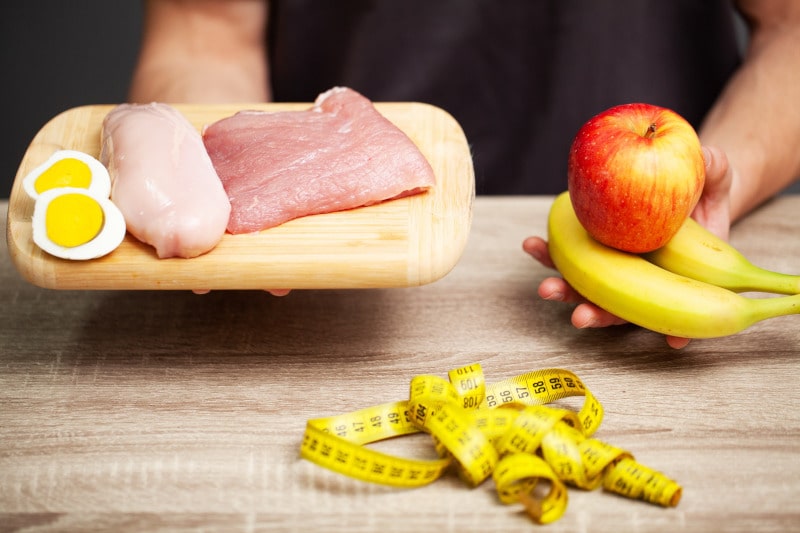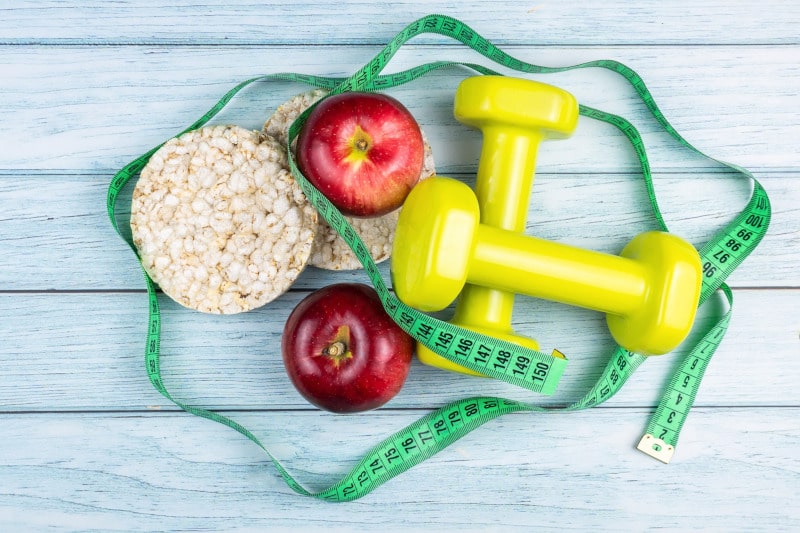If you want to increase your muscle mass, you should not only focus on training, but also on nutrition. The importance of following a proper diet to gain muscle mass lies in the fact that you need a positive energy balance, that is, consuming more calories than you burn, and making sure you eat enough protein to promote muscle growth.
Combining resistance exercise and a proper diet to gain muscle mass is key to effectively increasing lean body mass.
Throughout this article, I will provide you with a detailed guide on the key aspects of a proper diet to gain muscle mass, from the amount of protein needed to the importance of carbohydrates, healthy fats and hydration.
In addition, a very useful tool for properly managing a proper diet to gain muscle mass is the PlanEAT nutrition APP , which offers personalized advice. This application allows you to create a proper diet to gain muscle mass adapted to your needs, taking into account your lifestyle, food preferences and nutritional goals.
Content
1. The Role of Proteins in a Proper Diet to Gain Muscle Mass
2. Carbohydrates: The Main Source of Energy
3. Healthy Fats: A Necessary Ally
4. Hydration: Don’t Underestimate It
5. Strategies to Increase Calorie Intake
6. Post-Workout: The Importance of Recovery
7. Is it necessary to take supplements?
1. The Role of Proteins in a Proper Diet to Gain Muscle Mass
Proteins are essential for muscle growth. The process of muscle hypertrophy is based on protein synthesis, which means that the body uses amino acids from ingested proteins to repair and build muscle tissue after workouts.

How much protein is needed?
In a proper diet to gain muscle mass , the recommended daily protein intake ranges from 1.6 to 1.8 grams of protein per kilogram of body weight. For example, if you weigh 70 kg, you should consume between 112 and 126 grams of protein per day. This should be spread out throughout the day, preferably at each meal, to maximize protein synthesis.
Recommended Protein Sources
It is crucial to choose high-quality protein sources, both animal and plant-based. Some options include:
- Eggs
- Lean meat (chicken, turkey)
- Fish (salmon, tuna)
- Legumes (lentils, chickpeas)
- Low-fat dairy products (Greek yogurt, milk)
- Nuts and seeds
Making sure you vary your protein sources will ensure you get a complete profile of essential amino acids, which are key to balanced muscle-building diets, especially high-protein diets .
2. Carbohydrates: The Main Source of Energy
Carbohydrates are just as important in a proper diet to gain muscle mass . They are the body’s primary source of energy, and during intense workouts, the body relies on carbohydrates to maintain performance. They also help replenish muscle glycogen stores, which is vital for recovery and growth.
How many carbohydrates should you consume?
In a proper diet to gain muscle mass, carbohydrates should represent between 50% and 60% of the total daily calories. This ensures that the body has enough energy to perform intense workouts and does not resort to protein as an energy source, which could decrease muscle growth.
Recommended Carbohydrate Sources
To maximize muscle growth, it is important to opt for complex, fiber-rich carbohydrates. Some ideal sources are:
- Oatmeal
- Brown rice
- Potatoes and sweet potatoes
- Whole grain bread and pasta
- Fruits and vegetables
These foods, being low glycemic index, provide energy in a constant and stable manner, which favors protein synthesis and, consequently, muscle development.
3. Healthy Fats: A Necessary Ally
Although many people avoid fats, they are essential in a proper diet to gain muscle mass . Healthy fats not only provide energy, but also play an important role in the production of hormones, such as testosterone, which is key to muscle growth.

Sources of healthy fats
It is recommended that 20% to 30% of your daily calories come from healthy fats. Some of the best sources of fat include:
- Avocado
- Olive oil
- Nuts
- Fatty fish (salmon, sardines)
- Chia and flax seeds
It is important to avoid excessive consumption of saturated and trans fats, present in processed foods, which can have negative effects on overall health.
4. Hydration: Don’t Underestimate It
Water is essential in any diet, and even more so in a proper diet to gain muscle mass . Adequate hydration is essential to maintain good performance during training and to ensure proper post-workout recovery.
How Much Water is Needed?
Drinking at least 2-3 liters of water a day is essential to stay hydrated. In situations of intense training or in hot climates, the amount of water should be increased. Sports drinks can also be consumed if training is high intensity and with high sweating, to replenish lost electrolytes.
5. Strategies to Increase Calorie Intake
To gain muscle mass, you need to consume more calories than you expend. Increasing your calorie intake in a balanced way is key to avoiding gaining fat instead of muscle. Some strategies to achieve this include:
- Eat more times a day, distributing calories over 5 or 6 meals.
- Add calorie-dense foods, such as nuts, avocados or healthy oils.
- Ensure adequate carbohydrate intake before and after workouts.
6. Post-Workout: The Importance of Recovery
The food you consume after your workout is crucial for muscle recovery and growth. During the two hours after exercise, your body is in its optimal phase to absorb nutrients and begin the recovery process.
What to Eat After Training?
Ideally, you should consume a combination of carbohydrates and protein. Carbohydrates replenish muscle glycogen, while protein helps repair muscle fibers. Some post-workout options include:
- Protein shake with oats or banana
- Yogurt with fruits
- Chicken breast with brown rice
7. Is it necessary to take supplements?
Although diet is the main pillar for gaining muscle mass, supplements can be useful to complement the diet. Some recommended supplements are:
- Protein powder (whey protein): ideal for after training or as a snack between meals.
- Creatine: improves performance during high intensity workouts.
- BCAA (branched chain amino acids): help reduce muscle fatigue and improve recovery.
A proper diet to gain muscle mass requires planning and consistency. It’s not just about increasing the amount of protein, but maintaining a proper balance between all macronutrients: protein, carbohydrates and fats. In addition, hydration and proper post-workout planning are key to ensuring optimal recovery and maximizing results.

If you combine a well-structured diet with proper training, you will be on the right track to achieve your goals of gaining muscle mass.
PlanEAT guides you to ensure that you not only meet your protein needs, but also maintain the proper balance between different nutrients.
With the free nutrition app , PlanEAT , you can plan your meals, organize your shopping, and monitor your progress effectively. The customization it offers is ideal for those looking for optimal results when following a diet focused on muscle development.
This makes it easy to create balanced menus tailored to your specific needs, which translates into accurate and constant monitoring of your progress.

